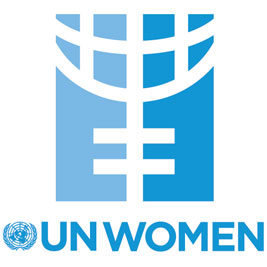 Minimise workplace hierarchies to improve gender equality.
Minimise workplace hierarchies to improve gender equality.
Gamer's online behaviour can identify some of the factors that trigger online sexist trolling, according to recent research from the University of New South Wales in Australia.
In a nutshell, evolutionary biology theory hinges on the existence of hierarchical structures, and according to this study when women enter and disrupt these structures – in a gaming context in this instance – the low-achieving males tend to get angry and lash out at the women.
Interestingly, the low-achieving males are seemingly deferential towards the high-achieving males at the top of the pecking order.
And the high-achieving males are ‘totally cool’ with the female players, presumably because they are either too skilled to be phased by their presence or they view them as potential mates. Or both.
The study, ‘Insights into Sexism: Male Status and Performance Moderates Female-Directed Hostile and Amicable Behaviour’, was conducted by Michael M. Kasumovic and Jeffrey H. Kuznekoff and was published in the PLOS ONE journal.
And it shines a light on male online hostility towards women, which is so depressingly prolific.
They write: "Low-status males that have the most to lose due to a hierarchical reconfiguration are responding to the threat female competitors pose.
"High-status males with the least to fear were more positive, suggesting they were switching to a supportive, and potentially, mate attraction role."
Kasumovic went into more detail in an interview for Wired, and said that: "Think about STEM [science, technology, engineering and maths] fields, for example, or construction, or medical professions. Wherever there's going to be a male bias sex ratio, there'll probably be this strong hierarchy and a very aggressive way for men to ensure their status above women."
You don't have to look too far to see examples of this behaviour.
Just look at the recent furore at Reddit HQ, where interim CEO Ellen Pao was forced to resign after what was arguably "one of the largest trolling attacks in history".
To cut a long and convoluted story short, Pao was spearheading an anti-harassment scheme on Reddit, and had shut down some of the nastier sections of the site that were encouraging harassment, including revenge porn, racist and fat shaming groups.
This irked some 200,000-plus users who then signed a petition to get rid of Pao, under the pretext that she was 'incompetent' and had sacked a well-loved Reddit employee, Victoria Taylor, who ran the wildly popular Ask Me Anything section.
Actually, Pao wasn't responsible for Taylor's sacking, but why let that fact get in the way of a good bout of woman-bashing?
Pao has been replaced by the new CEO of Reddit, Steve Huffman, but not before being subjected to a 'sickening' tidal wave of racist and sexist abuse, including rape and death threats.
Sam Biddle wrote in Gawker: “[…] this is Reddit. To the site's super-dedicated core, an overwhelmingly male group of very vocal power-users whose understanding of progressive politics is limited to the idea that their pirated ecchi torrents have just as much a right to bandwidth as Netflix, few things are more offensive than being told what to do by a woman.”
Again, this is something that is depressingly familiar online.
And it is not just online.
As Holly Brockwell, editor-in-chief of women’s tech website Gadgette wrote recently in the Guardian, "When I went to a tech trade show this year, I saw half-dressed booth babes used as decoration. At the next one, a huge global firm asked me to flash my breasts to try their new smartwatch, followed by skipping me repeatedly in the queue in favour of men."
And she added: "If you're thinking "not this again", you're not alone.
"Even those of us who are fiercely pro-equality have felt fatigue towards the topic lately, with endless words analysing the issue from every angle.
"But societal changes take a serious amount of time to propagate and we seem to be expecting a quick fix."
But to come back to Kasumovic and Kuznekoff's study; perhaps there is a way forward.
By recognising the role social hierarchies played in determining online behaviour, then minimising those social structures we could in turn reduce sexism.
And if this translated into real-life situations, such as male-dominated professions, then we could eventually see more gender equality in the workplace and on the internet.
Here’s hoping…









